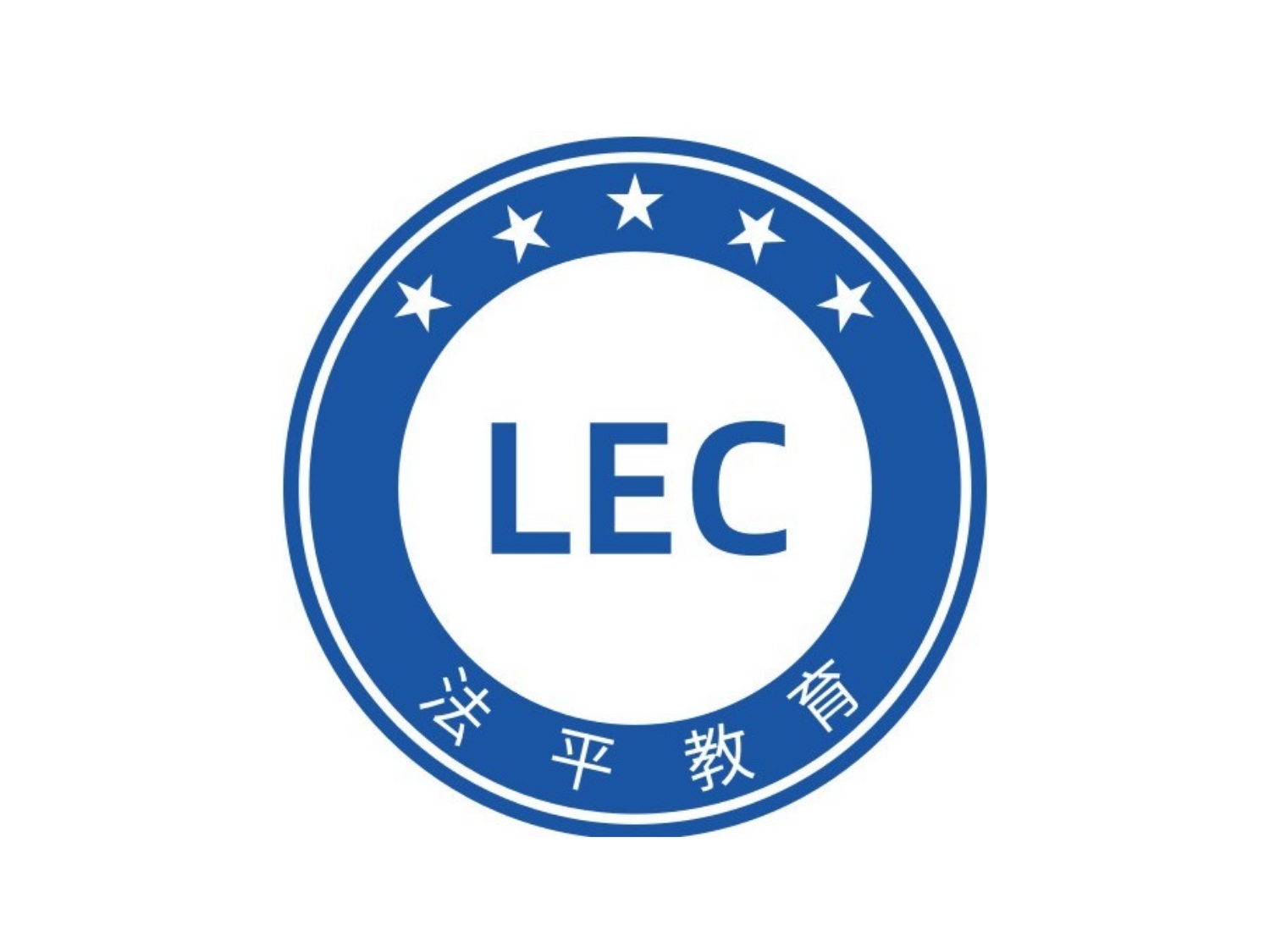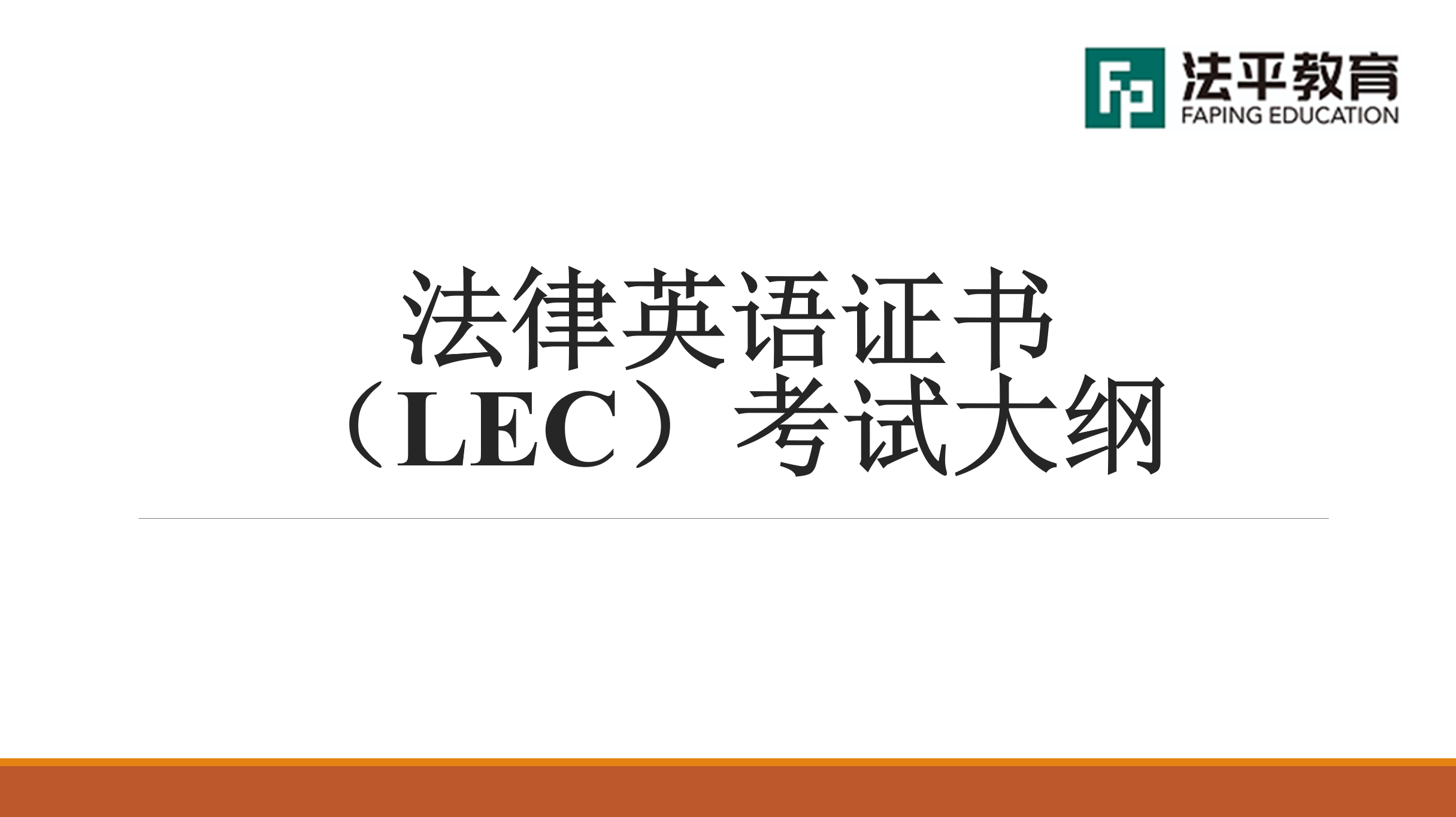
LEC真题介绍1-案例阅读部分
LEC法律英语证书考试2016年11月真题--案例阅读部分展示:
Part I. Case Reading Comprehension (25 points)
Read the case carefully and briefly answer the questions following the case:
LANGER
V.
SUPERIOR STEEL CORP
Superior Court of Pennsylvania
105 Pa Super. 579
1932
BALDRIGE. J
This is an action of assumpsit to recover damages for breach of a contract. The court below sustained questions of law raised by defendant, and entered judgment in its favor
The plaintiff alleges that he is entitled to recover certain monthly payments provided for in the following letter
“August, 1927
“Mr. Wm. F. Langer,
“Dear Sir: As you are retiring from active duty with this company, as Superintendent of the Annealing Department, on August 31, we hope that it will give you some pleasure to receive this official letter of commendation for your long and faithful service with the Superior Steel Corporation.
The Directors have decided that you will receive a pension of $100.00 per month as long as you live and preserve your present attitude of loyalty to the Company and its Officers and are not employed in any competitive occupation. We sincerely hope that you will live long to enjoy it and that this and the other evidences of the esteem in which you are held by your fellow employees and which you will today receive with this letter, will please you as much as it does us to bestow them.
“Cordially yours,
“[Signed] Frank R Frost
“President.”
The defendant paid the sum of $100 a month for approximately four years when the plaintiff was notified that the company no longer intended to continue the payments.
The issue raised is whether the letter created a gratuitous promise or an enforceable contract. It is frequently a matter of great difficulty to differentiate between promises creating legal obligations and mere gratuitous agreements. Each case depends to a degree upon its peculiar facts and circumstances. Was this promise supported by a sufficient consideration, or was it but a condition attached to a gift?.. It was held in Presbyterian Board of Foreign Missions v Smith, 209 Pa 361, 363, 58 A 689, that"a test of good consideration is whether the promisee, at the instance of the promisor, has done, forborne, or undertaken to do anything real, or whether he has suffered any detriment, or whether, in return for the promise, he has done something that he was not bound to do, or has promised to do some act, or has abstained from doing something.
The plaintiff, in his statement, which must be admitted as true in considering the statutory demurrer filed by defendant, alleges that he refrained from seeking
employment with any competitive company, and that he complied with the terms of the agreement. By so doing, has he sustained any detriment? Was his forbearance sufficient to support a good consideration? Professor Williston, in his treatise on Contracts, $112, states: "It is often difficult to determine whether words of condition in a promise indicate a request for consideration or state a mere condition in a gratuitous promise. An aid, though not a conclusive test in determining which construction of the promise is more reasonable, is an inquiry whether the happening of the condition will be a benefit to the promisor. If so, it is a fair inference that the happening was requested as a consideration . In case of doubt where the promisee has incurred a detriment on the faith of the promise, courts will naturally be loath to regard the promise as a mere gratuity, and the detriment incurred as merely a 312 condition.”
It is reasonable to conclude that it is to the advantage of the defendant if the plaintiff, who had been employed for a long period of time as its superintendent in the annealing department, and who, undoubtedly, had knowledge of the methods used by the employer, is not employed by a competitive company; otherwise, such a stipulation would have been unnecessary. That must have been the inducing reason for inserting that provision. There is nothing appearing of record, except the condition imposed by the defendant, that would have prevented this man of skill and experience from seeking employment elsewhere. By receiving the monthly payments, he impliedly accepted the conditions imposed, and was thus restrained from doing that which he had a right to do. This was a sufficient consideration to support a contract.
The appellee refers to Kirksey v Kirksey, 8 Ala. 131, which is also cited by Professor Williston in his work on Contracts, $112, note 51, as a leading case on this subject under discussion.. In that case, . there was no benefit to be derived by the promisor, as in the case at bar, and therefore a good consideration was lacking Judgment is reversed, and the defendant is hereby given permission to file an affidavit of defense to the merits of the plaintiffs claim.
Questions to be answered:
1. What is the relief being sought by plaintiff Mr. Langer in this case?
2. What was the issue to be decided by the court in this case?
3. What is the legal consequence if the letter from defendant Superior Steel Corp
constituted a gratuitous promise under common law legal principles?
4. What did the court determine as the reason inducing the defendant Superior Stee Corp. to promise to pay plaintiff Mr. Langer a $100 each month for four years?
5. What was the legal detriment incurred by plaintiff Mr. Langer for this court to
determine sufficient consideration existing to support a contract with defendant
Superior Steel Corp?
以上内容摘自:《法律英语证书(LEC)全国统一考试历年真题详解》329-332面。
点击最底部的阅读原文可购买LEC真题解析。
更多信息详见LEC考试官网:www.lectest.com
(文章来源:法平教育)



